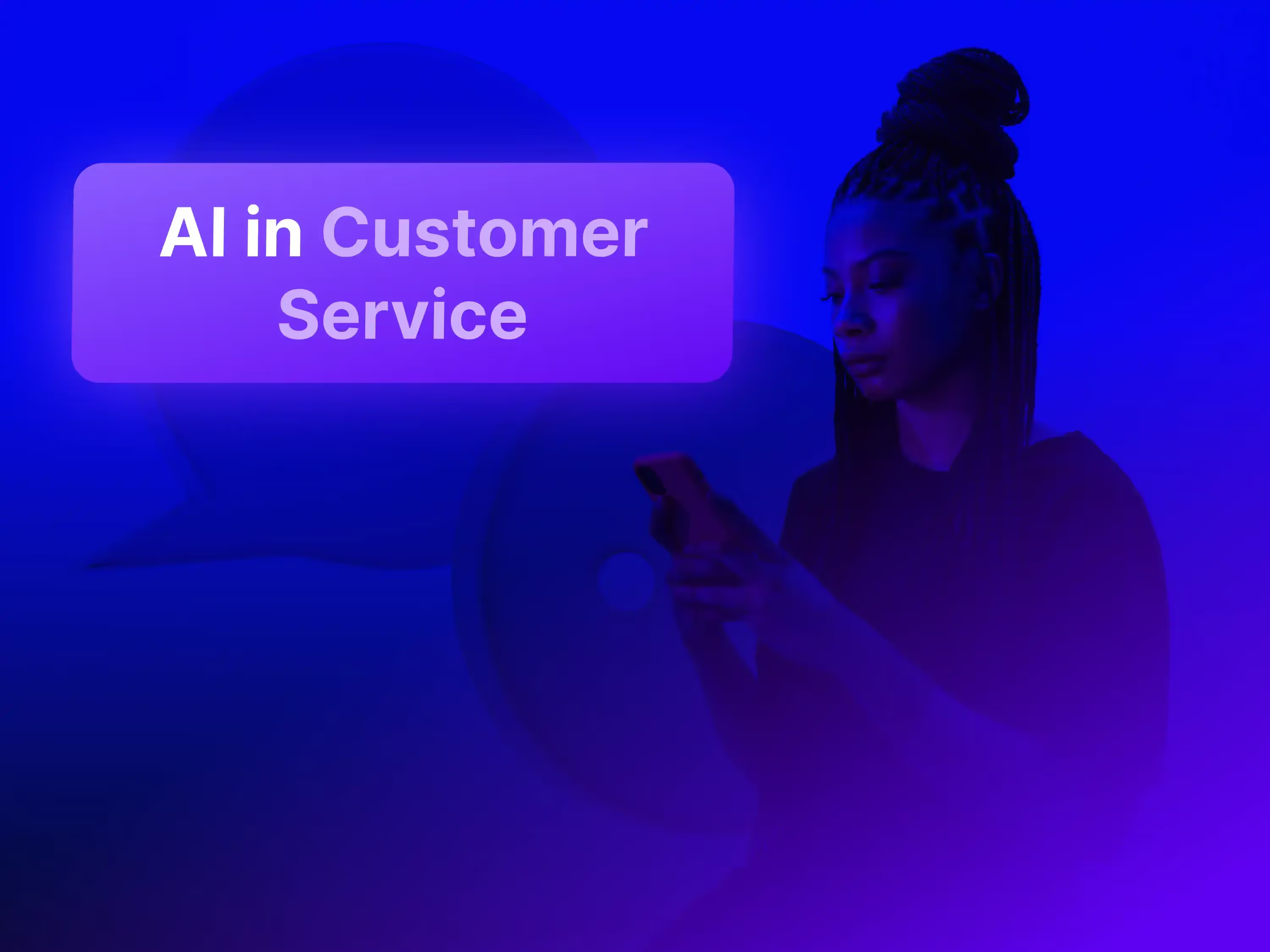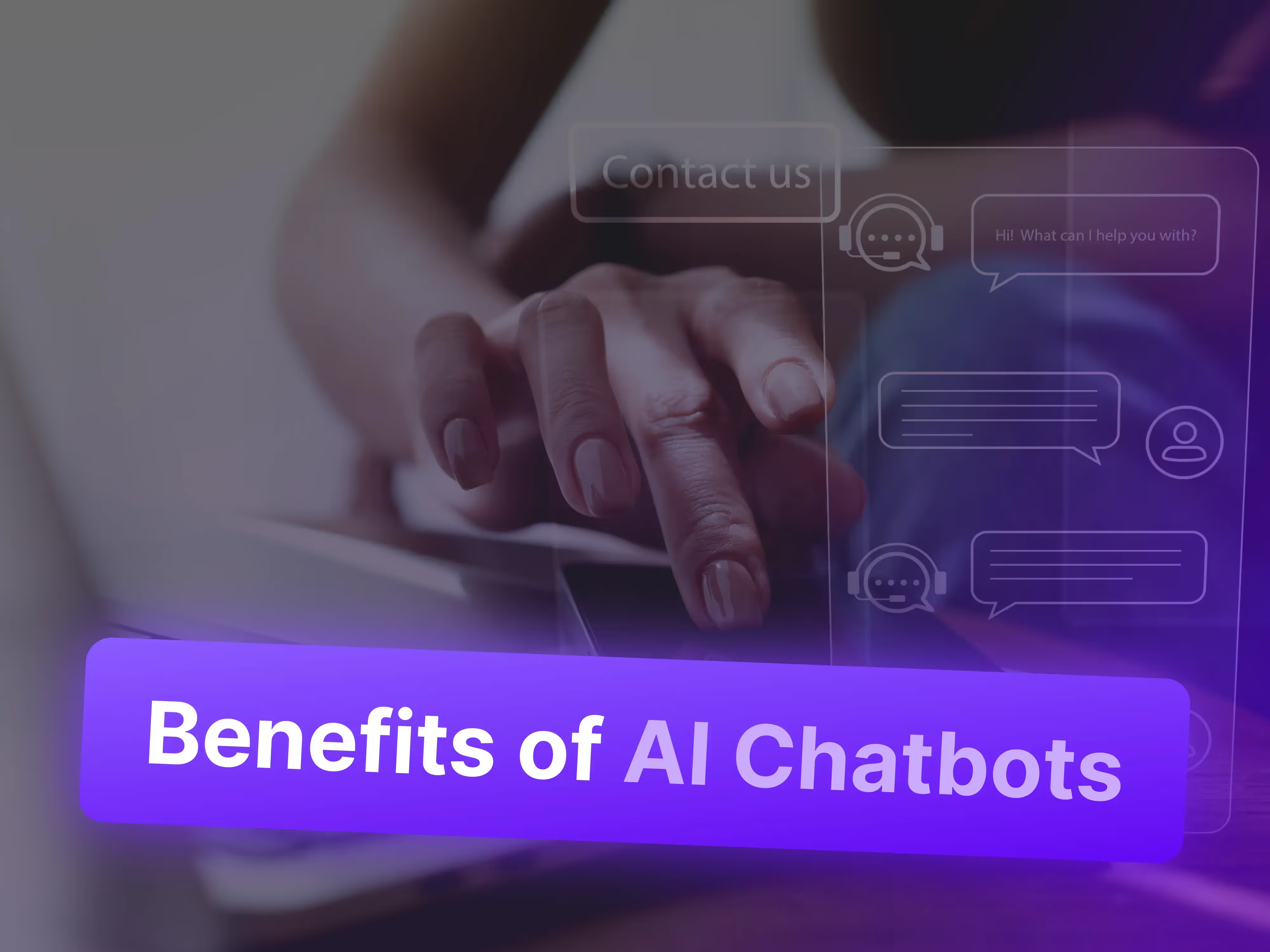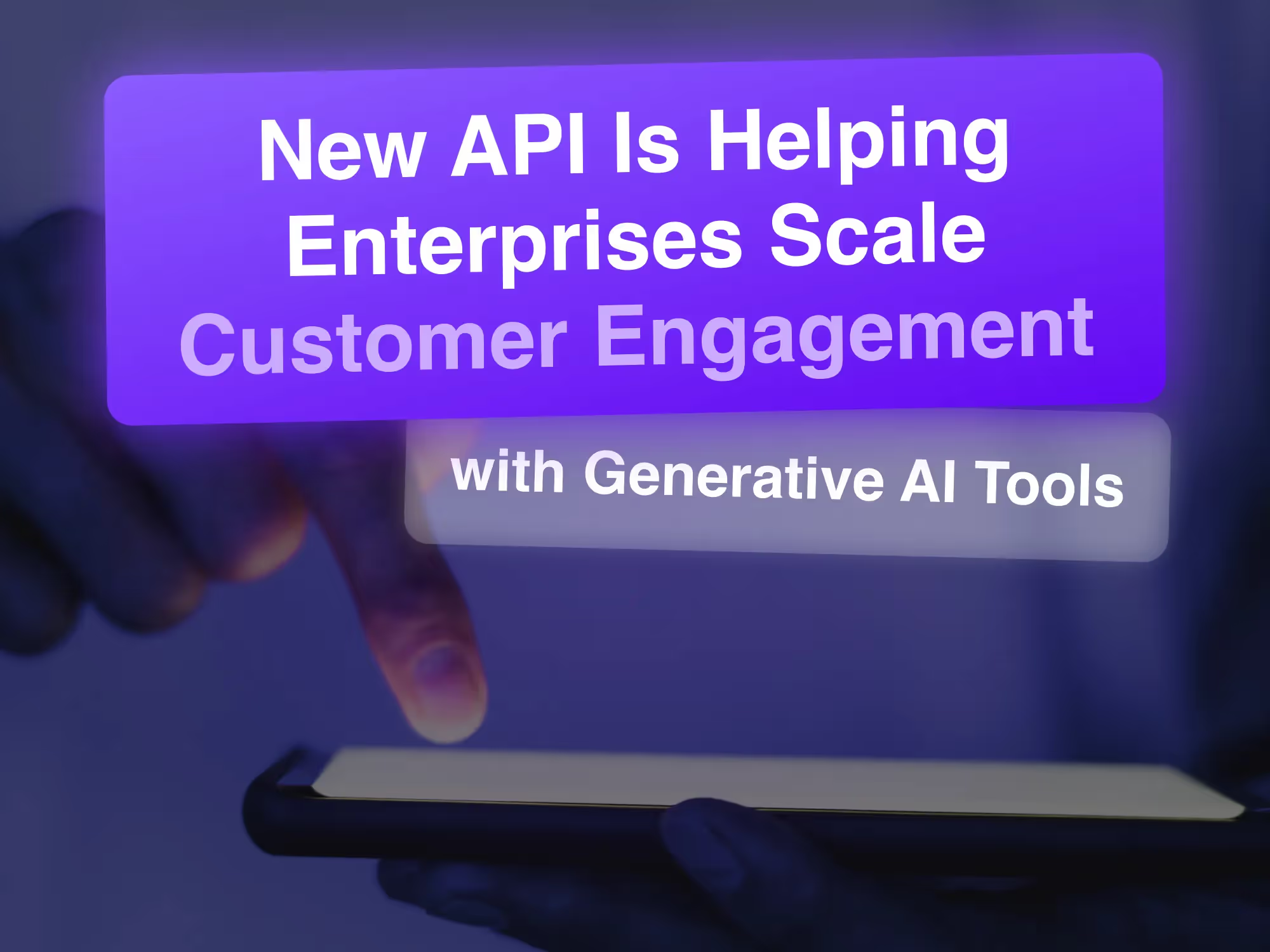Transform your customer service operations with AI technology that's already revolutionizing support teams worldwide. From reducing response times by 80% to handling 65% more tickets without adding staff, AI-powered solutions are delivering measurable results.
What is AI in Customer Service?
AI in customer service refers to the use of artificial intelligence technologies—such as chatbots with Avatar, machine learning, natural language processing (NLP), and predictive analytics—to automate, personalize, and improve customer interactions.
These tools handle tasks like answering queries, routing tickets, and offering real-time support, enhancing efficiency and user satisfaction.
Before AI, customer service relied heavily on human agents for repetitive tasks like responding to FAQs or routing calls. This approach was time-consuming, costly, and prone to delays, especially during high-volume periods.
It is now replaced by AI support agents which can automate routine tasks, enable faster, more accurate support while allowing teams to focus on complex issues.
Challenges of Traditional Customer Service
Traditional customer service often struggled with inefficiency, inconsistency, and high operational costs. For businesses, it meant scaling difficulties and repetitive tasks, while customers faced long wait times and limited availability.
Challenges for Businesses
- High Operational Costs: Maintaining large customer support teams to handle queries increased overhead expenses.
- Scaling Issues: Handling surges in support requests, especially during peak periods, was difficult without adding more staff.
- Limited Insights: Traditional methods lacked data-driven insights to predict customer needs or improve processes.
- Repetitive Tasks: Agents were burdened with routine queries, reducing time for resolving complex issues.
Challenges for Users
- Long Wait Times: Customers often experience delays due to limited agent availability during busy periods.
- Inconsistent Support Quality: The quality of assistance varied depending on the agent's expertise and workload.
- Lack of 24/7 Availability: Traditional customer service teams couldn’t provide round-the-clock support, leaving customers waiting for help.
- Limited Personalization: Generic responses failed to address individual needs or preferences effectively.
Benefits of AI Customer Service
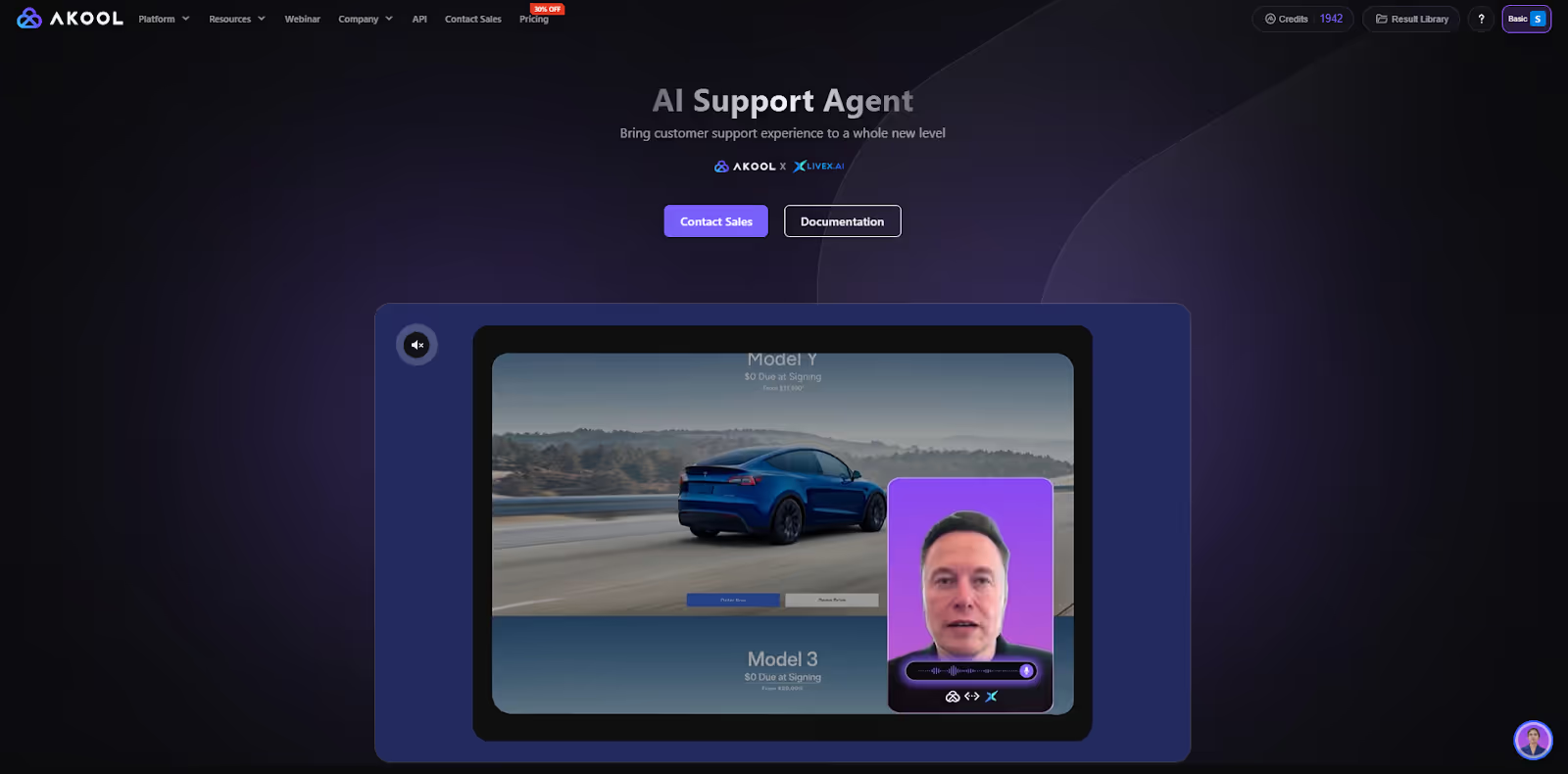
AI-enabled customer service technologies have improved how businesses engage with customers, creating value for both organizations and end-users. While traditional systems struggle with scale and consistency, AI enables proactive, personalized support delivery.
For Businesses:
- Cost Optimization: Reduce support costs by up to 30% while handling higher ticket volumes.
- Proactive Support: Identify and resolve potential issues before customers report them.
- Global Reach: Support multiple languages and time zones without additional staffing.
- Data-Driven Insights: Generate actionable customer behavior patterns and trend analysis.
For Customers:
- Instant Resolution: Get immediate answers for common issues at any time.
- Personalized Experience: Receive customized solutions based on previous interactions and preferences.
- Multi-Channel Support: Seamless customer experience across chat though AI-chatbots, email, phone, and social platforms.
- Smart Self-Service: Access intelligent knowledge bases that adapt to user needs.
10 Examples of Utilizing AI in Customer Service
Here are some of the best instances of AI in customer service:
Recognizing Fraud
Sophisticated AI algorithms monitor customer interactions and transactions in real-time to identify suspicious patterns. This vigilance helps prevent fraudulent activities before they impact customers, building trust and protecting both parties.
Customer Segmentation
AI segmentation tools group customers based on behavior, preferences, and needs. These insights enable companies to develop more targeted marketing approaches and service strategies, ensuring resources focus on the most relevant opportunities.
Sentiment Analysis
By examining customer feedback, support interactions, and social media posts, AI sentiment tools gauge emotional responses and satisfaction levels. These insights help companies identify improvement areas and address emerging concerns before they escalate.
Summarization
When cases transfer between AI and human agents, escalate to supervisors, or reach resolution, AI summarization tools instantly capture key details, recommendations, and outcomes. This technology eliminates one of the most time-consuming aspects of service work while ensuring comprehensive documentation.
AI Support Agents
AI agents excel at managing diverse tasks across service channels and help sites. From answering routine questions to solving complex problems, these systems deliver intelligent, conversational support tailored to each customer's needs without requiring human intervention.

User Recommendations
By analyzing customer data and purchase history, AI recommendation engines suggest relevant products and services at optimal moments. These personalized suggestions enhance customer satisfaction while creating additional value and revenue opportunities.
AI Voices
Contact centers increasingly deploy Voice AI as their first line of interaction. These systems understand natural language, respond effectively to customer queries, and eliminate frustrating menu navigation. Customers appreciate speaking naturally rather than pressing buttons for assistance.
Predictive Analytics
AI predictive systems forecast customer behavior and preferences by identifying patterns across interactions. This foresight enables companies to anticipate needs and address them proactively, transforming reactive service into preventative solutions.
Automated Responses
Service Replies technology provides representatives with AI-generated responses while working cases. These tailored suggestions save significant time and improve communication quality, though human verification remains essential for accuracy and appropriateness.
Self-Service
AI-powered self-service platforms enable customers to find answers, track orders, and manage accounts independently. These systems continuously learn from interactions to improve their effectiveness, reducing support volume while increasing customer autonomy.

How to Implement AI Into Your Customer Service?
These are the simplest steps to add AI to your customer service. With this proper planning, you can use AI technologies to help answer questions and solve problems of customers faster:
Step 1: Define Clear Goals
- Identify objectives like faster responses or automating FAQs.
- Align AI efforts with customer service priorities.
Step 2: Assess Pain Points
- Find inefficiencies in current workflows.
- Pinpoint tasks that AI can automate, like ticket routing.
Step 3: Set Measurable KPIs
- Track metrics like resolution time or satisfaction rates.
- Use benchmarks to measure AI’s impact.
Step 4: Choose the Right AI Tools
- Select tools that fit your needs, like chatbots or analytics.
- Ensure they are scalable and easy to integrate.
Step 5: Ensure Seamless Integration
- Connect AI with CRM and ticketing systems.
- Test tools to avoid disruptions during rollout.
Step 6: Train Your Team
- Teach employees to collaborate with AI tools.
- Incorporate feedback to refine workflows.
Step 7: Monitor and Optimize
- Review KPIs regularly to track performance.
- Update AI models based on customer trends.
Getting Started with AI Customer Support: Quick Implementation Guide
After you have implemented AI, follow these simple steps to get started with AI customer support:
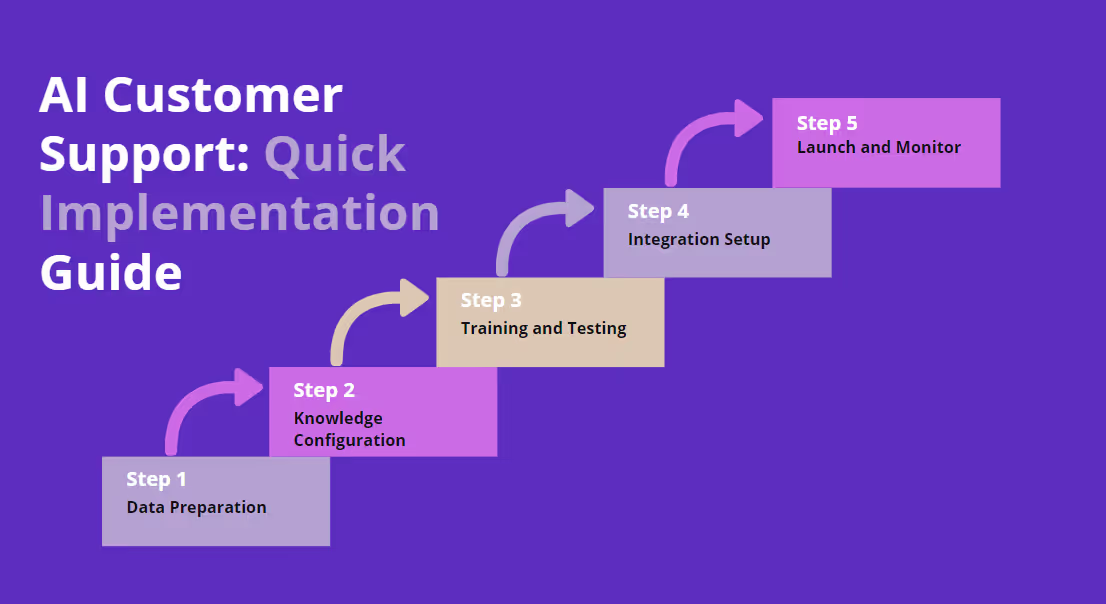
Step 1: Data Preparation
Upload existing support tickets, chat logs, and knowledge base articles to build your AI's foundation.
Step 2: Knowledge Configuration
Define categories for common issues, set up response templates, and establish escalation rules.
Step 3: Training and Testing
Train the AI model on your data, test accuracy with sample queries, and refine responses.
Step 4: Integration Setup
Connect AI support to your existing channels (website, email, chat) through available APIs.
Step 5: Launch and Monitor
Start with a pilot program, gather feedback, and optimize based on performance metrics.
What to Consider When Implementing AI-Powered Customer Service?
These are the special considerations you need to keep in mind while implementing AI-powered customer service in your business model:
1. Budget and Resources
Ensure your business can allocate sufficient financial and operational resources for AI implementation, including setup, training, and ongoing maintenance.
2. Scalability
Choose a solution that can grow alongside your business needs, accommodating higher customer volumes or expanding across new platforms seamlessly.
3. Customer Experience Expertise
Select tools designed to deliver precise, human-like interactions, prioritizing platforms with a proven track record of enhancing customer satisfaction.
4. Implementation Timeframe
Choose AI systems with quick deployment and measurable results. This will minimize the downtime and accelerate the return on investment.
5. Data Security and Compliance
Ensure the platform adheres to strict data protection regulations, offering encryption and safeguards to protect sensitive customer information.
Understanding the AI Technologies Behind AI Customer Support
AI customer support relies on advanced technologies that enable automation, personalization, and efficiency in customer interactions. Here are the key technologies powering these solutions:
- Natural Language Processing (NLP): Allows AI to understand, interpret, and respond to human language in real time, making interactions seamless and conversational.
- Machine Learning (ML): Enables AI to learn from data, improving accuracy and efficiency over time by recognizing patterns and adapting to new scenarios.
- Predictive Analytics: Analyzes customer data to anticipate needs, resolve issues proactively, and provide tailored solutions before problems escalate.
- Sentiment Analysis: Identifies customer emotions through text or speech, enabling empathetic responses and improved customer satisfaction.
- Generative AI: Creates personalized content, such as tailored responses or dynamic interactions which enhances engagement and user experience.
- Multimodal AI: Integrates text, voice, images, and video for richer, more interactive customer support experiences.
The Future of AI Customer Support: 2025 and Beyond
AI is transforming customer support faster than ever, with chatbots evolving into sophisticated digital assistants that understand context and emotion. Market experts predict that by 2026, nearly every customer interaction will involve AI in some form, changing how we think about service delivery.
The real game-changer? AI support is moving beyond simple problem-solving to predictive care - fixing issues before customers even notice them. Companies at the forefront of this shift are already seeing dramatic improvements in both cost savings and customer satisfaction. This makes AI adoption not just beneficial, but essential for staying competitive.
Partnering With the Right AI Customer Service Vendor
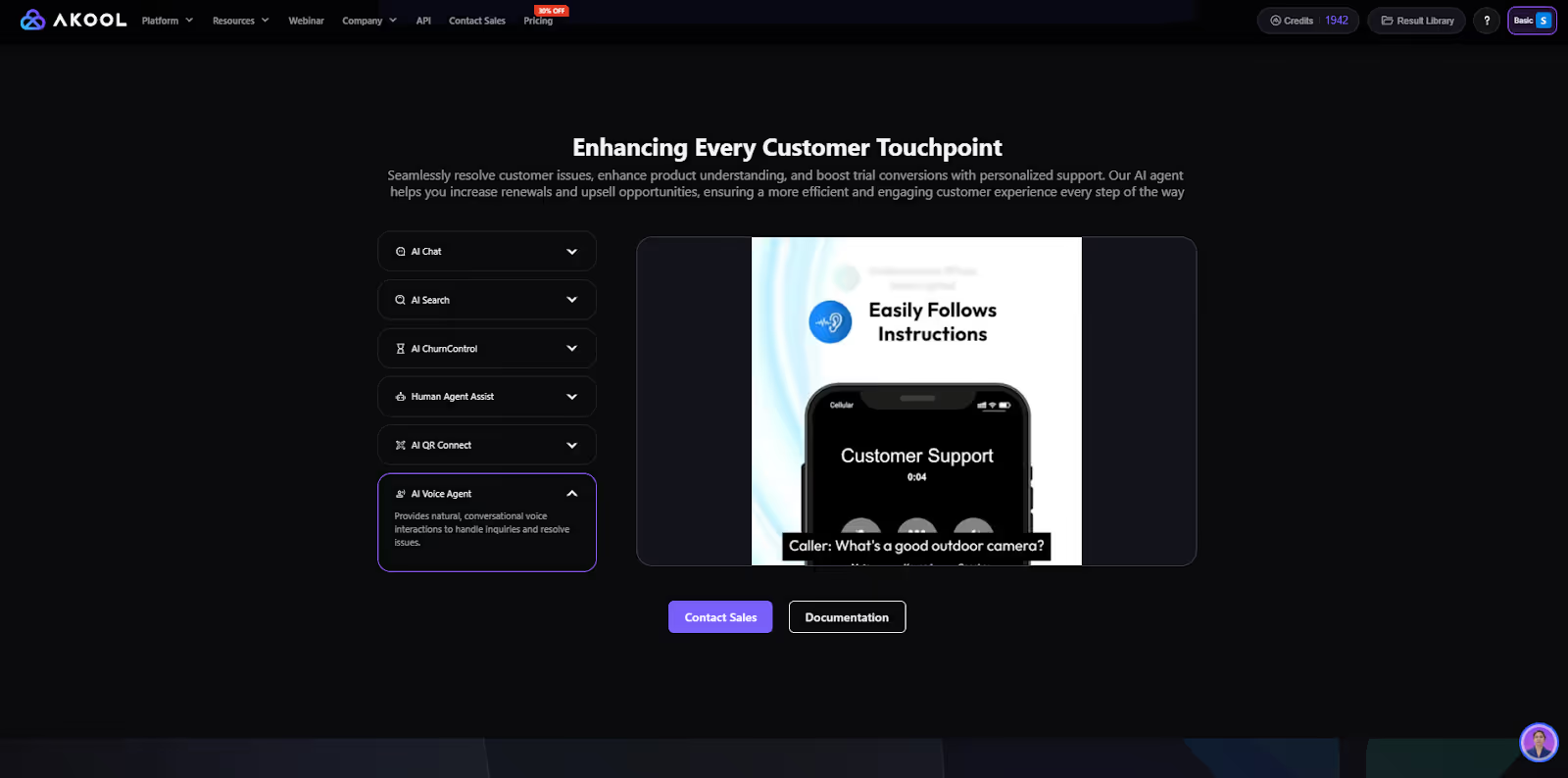
Choosing the right AI customer service vendor is critical for ensuring successful implementation and measurable results. AKOOL’s AI Support Agent offers a comprehensive solution for transforming your customer support experience, delivering efficiency and personalized engagement across multiple touchpoints.
With features like AI Chat, AI Voice Agent, and AI ChurnControl, AKOOL’s tools enable businesses to resolve issues seamlessly, retain customers, and boost conversions. By automating routine tasks, your team can focus on high-value interactions while improving customer satisfaction and loyalty.
Industries such as retail, finance, and healthcare have already seen up to 85% cost reductions and significant increases in self-resolution rates using AKOOL’s AI. Ready to improve your customer service? Partner with AKOOL to create an efficient, engaging, and reliable support system tailored to your business needs.



